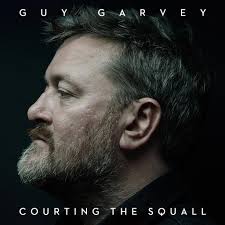Your support helps us to tell the story
From reproductive rights to climate change to Big Tech, The Independent is on the ground when the story is developing. Whether it's investigating the financials of Elon Musk's pro-Trump PAC or producing our latest documentary, 'The A Word', which shines a light on the American women fighting for reproductive rights, we know how important it is to parse out the facts from the messaging.
At such a critical moment in US history, we need reporters on the ground. Your donation allows us to keep sending journalists to speak to both sides of the story.
The Independent is trusted by Americans across the entire political spectrum. And unlike many other quality news outlets, we choose not to lock Americans out of our reporting and analysis with paywalls. We believe quality journalism should be available to everyone, paid for by those who can afford it.
Your support makes all the difference.As you’d expect from Elbow’s frontman, the songs on this debut solo album rarely stray too far from the sleeve on which Guy Garvey wears his heart. Most, if not all, are underscored by a sense of deep personal engagement, even when, as in “Belly of the Whale”, it’s largely about him labouring over a house.
The nest-building notion is also broached in the title track, where Rachael Gladwin’s harp is sprinkled over drums and ponderous synth chords. It’s weirdly coincidental that, just a week after harpist Joanna Newsom’s bird-riddled allegory of love and death, Divers, Garvey himself should likewise be contemplating avian thoughts of devotion and danger, and animating them with harp.
The devotion takes more redemptive form in “Angela’s Eyes”, where over a rolling jazz groove in which guitar, bass and drums combine with skeletal grace Garvey reflects, “I was headed for an early grave till I washed up on a tide/Yes, I believe in Angela’s eyes”. At the heart of it, there’s a subliminal tug of spirituality that resurfaces elsewhere, both in the tumbling church of “Three Bells” and the agonised ardour of “Yesterday”, whose lolloping stride carries Garvey’s torrential stream of emotion, recounted in unpunctuated flow.
“Yesterday” is clearly a song about loving the past but living for the future, a paradox most vividly realised in the duet with Jolie Holland, “Electricity”. The brushed drums and louche, sallow saxophone lend an empty nightclub torpor to the backing, over which Holland applies her distinctive, enervated jazz delivery alongside Garvey. It’s like an exercise in entropy, a long, slow fade of impetus, yet it’s all about what’s still to come, a life infused with excitement, “fizzing through the night, day into the light, all for you”.
That track is perhaps the most fully formed piece here, in that it follows the clearest stylistic archetype. Elsewhere, the grooves, worked up by Garvey’s “favourite musicians outside Elbow” – I Am Kloot’s Pete Jobson on guitar, The Whip’s Nathan Sudders on bass, Alex Reeves on drums, and multi-instrumentalist Ben Christophers on keyboards – have a loose, organic feel that works beautifully with the singer’s warm, ruminative manner. “Unwind” is particularly effective, with slow, striding bass and walking drums developing a gentle momentum when yoked to delicate piano and Garvey’s background humming, while an angular guitar figure adds a quizzical response to his query, “Can we find the trust we need just to unwind?”.
At the album’s heart, however, are the sketched impressions of quiet emotional turmoil that have become part of Garvey’s stock-in-trade, a personal space bookended here by the ebullient energy so charmingly contained by the plaintive melodica, cycling piano and dulcimer of “Juggernaut”and the gloom that finds him “missing that moody girl” in “Harder Edges”. “I’m sick of ticking boredom, counting down the beating hours,” he notes; “She was capable of kind, but not inclined” – a couplet that carries a whole world of regret.
As with “Juggernaut”, it’s approached elliptically, through a slick drum shuffle with percolating piano notes, to which cryptic horns add a sort of colliery-band second-line counterpoint, their brassy shine adding contradictory colour to the burgeoning grey skies which Garvey, in one of the album’s most evocative images, likens to “living in a Tupperware box”. It’s typical of his, and his album’s, engaging charm that this somehow seems a most attractive, natural option.

Join our commenting forum
Join thought-provoking conversations, follow other Independent readers and see their replies
Comments